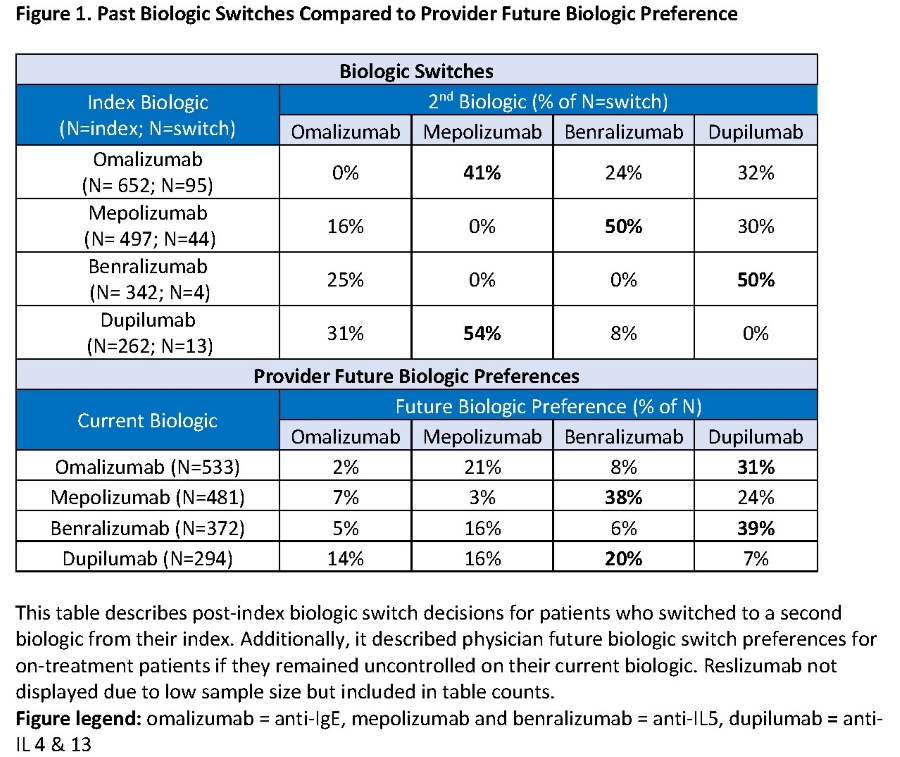Abstract
Background: Over the past 2 decades, several biologics have been approved in Severe Asthma (SA). Through evaluating past switch decisions and future prescribing preferences, shifting prescribing patterns may be observed.
Aims: Contrast past biologic switch decisions with provider future switch preferences.
Methods: Real-world data were collected from a retrospective, global database of healthcare provider (HCP)-reported electronic patient medical forms, from HCP treating SA patients across France, Germany, Italy, Spain, and the UK. Included patients had a SA diagnosis between January 1992 ? May 2022 with the earliest prescribed biologic used as index. Post index biologic switches, and HCP reported future switch preferences if a patient was uncontrolled on their current biologic, were reported.
Results: Of index omalizumab patients that switched, majority moved to an anti-IL5 mechanism of action (MOA), differing from future switch preferences (anti-IL4 &13). Amongst index mepolizumab patients who switched, 50% moved to another anti-IL5, aligned with future preferences of mepolizumab providers. Of index benralizumab and dupilumab, majority of switchers moved to a different MOA, agreeing with future switch preferences.
Conclusions: Mepolizumab providers preferred a future biologic switch within the same MOA, while those treating patients on other biologics favored a different MOA.
Funding: GSK:218228
